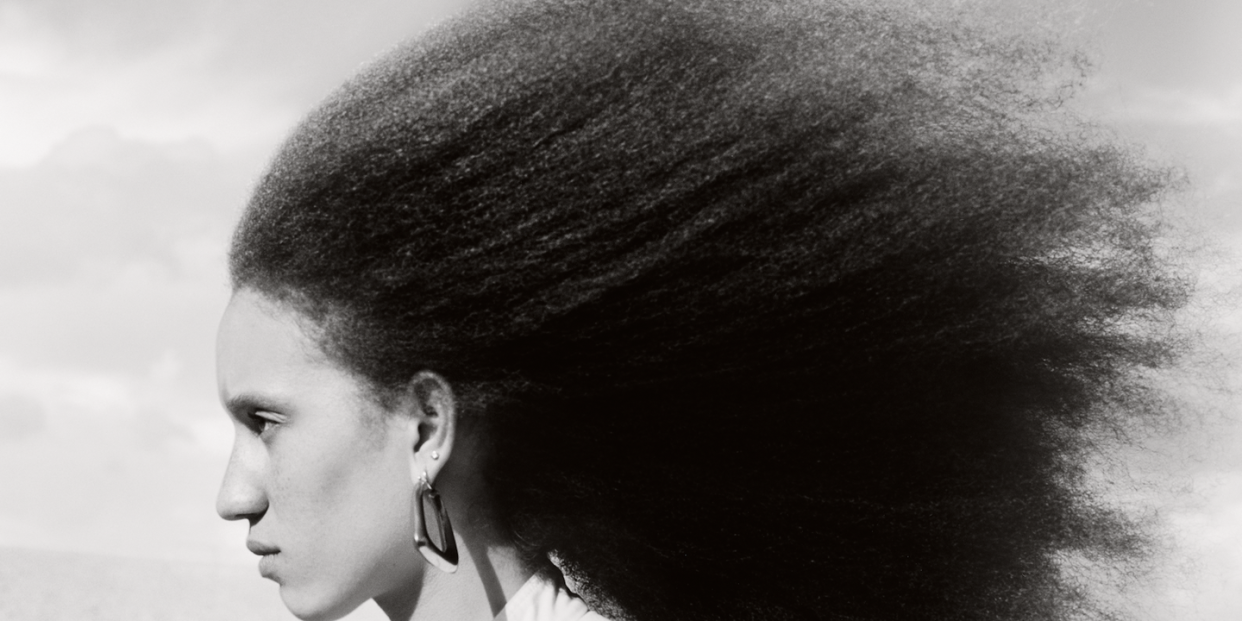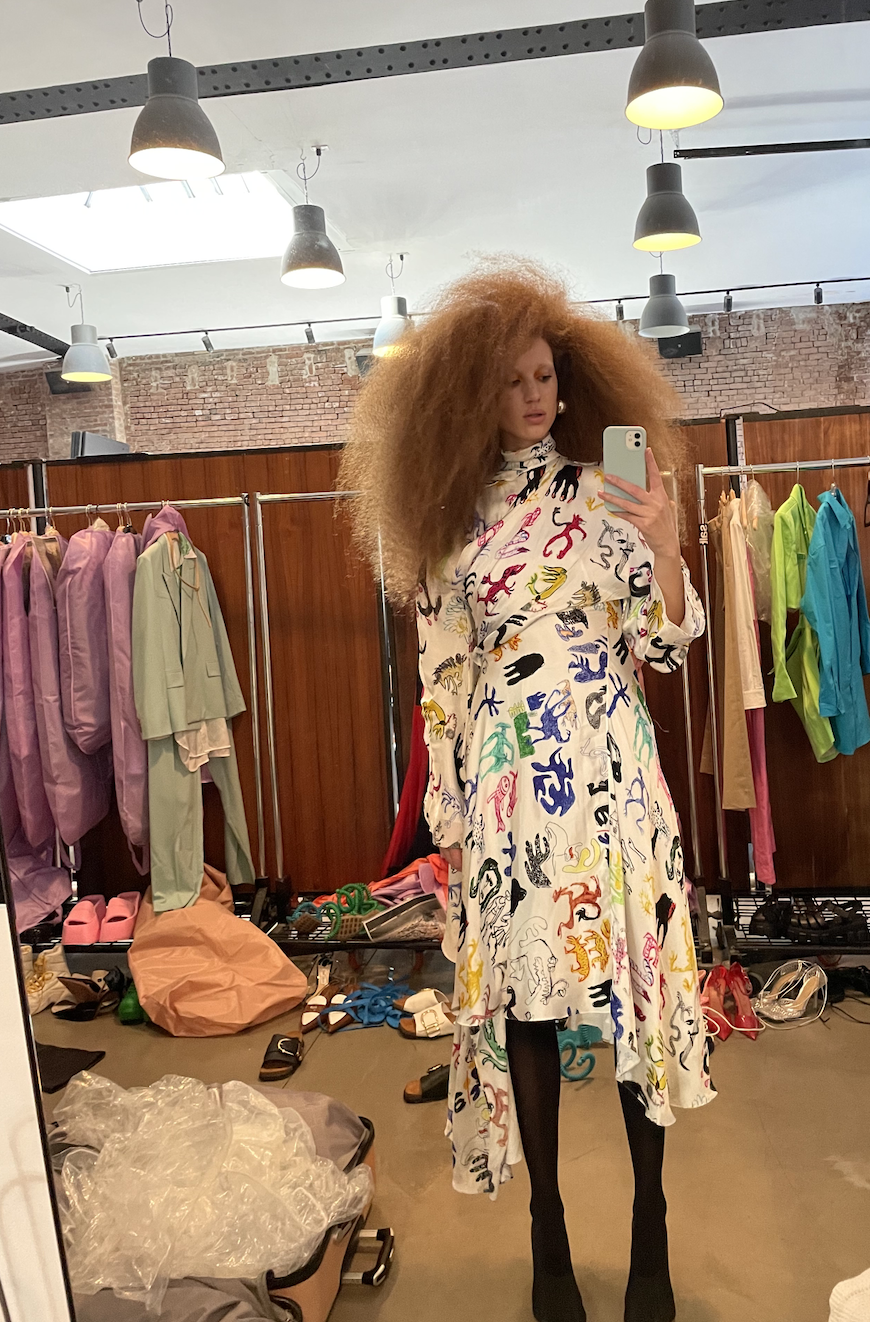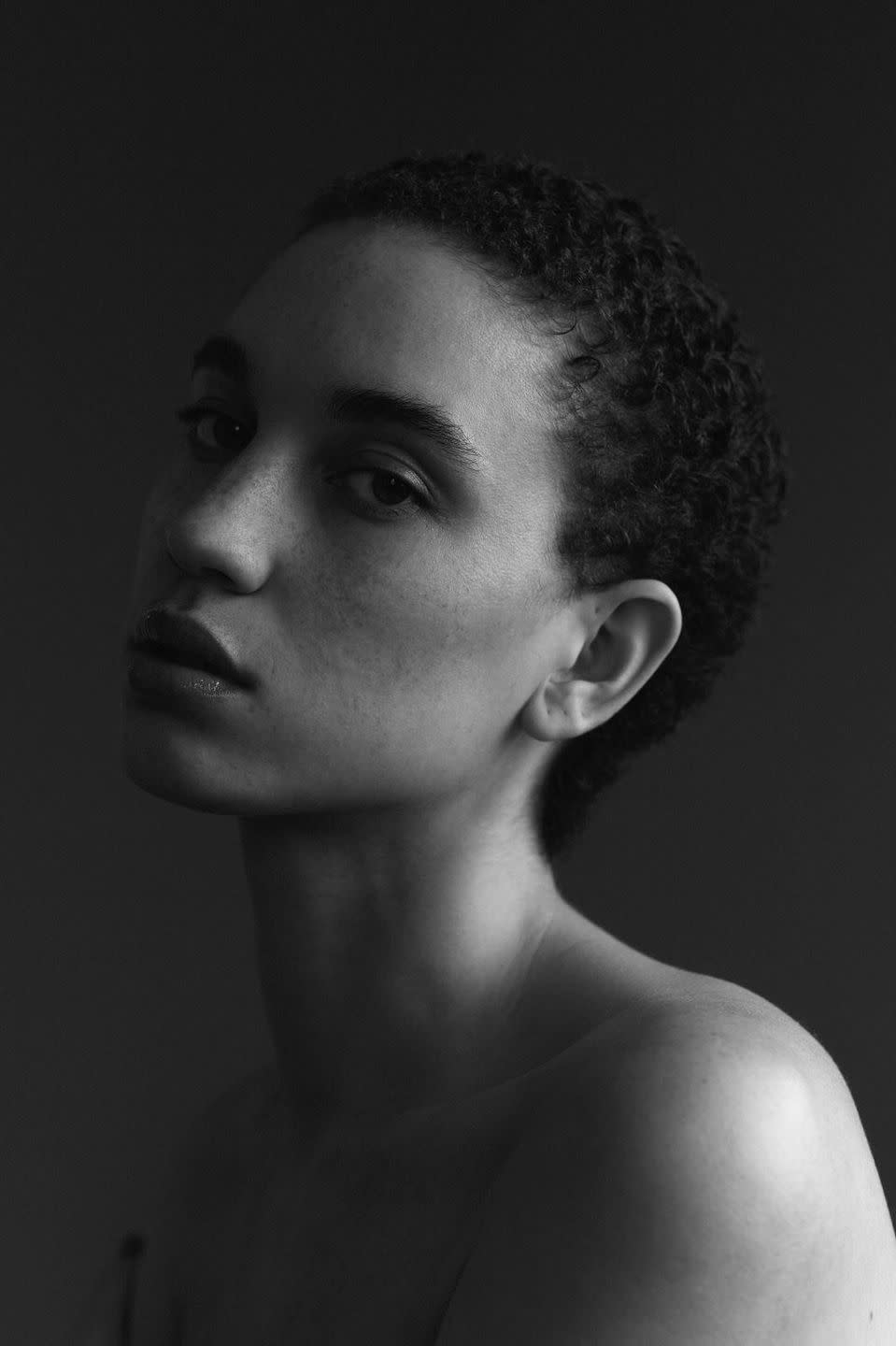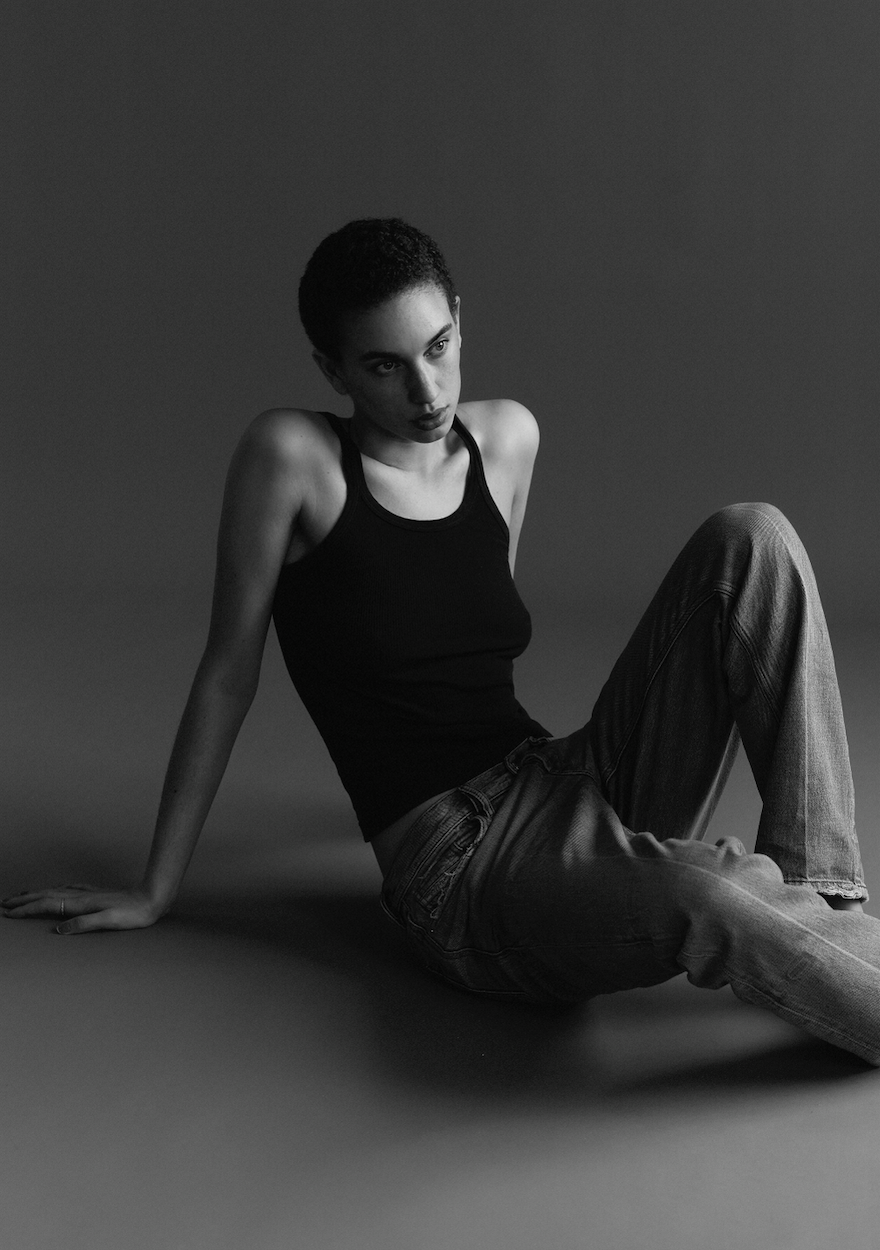I Cut Off My Afro Hair For The First Time - This Is What It’s Taught Me About My Identity

In mid-February, I decided to cut off my hair. It was not a particularly thought-out plan, in fact, there were roughly 48 hours between conception and execution, and before I knew it, 26 years of growth had been chopped off.
'I’m going to let you do the first few cuts,' my hairdresser told me, most likely feeling scared I was going to regret the decision – and I don't blame her. I have sported long, thick, afro hair with a distinctive ginger hue since childhood, a notable feature that's defined my appearance. Yet, as I sat there cutting off the four large braids my hair had been sectioned into (all of which would be donated to the Little Princess Foundation), I experienced a profound sense of joy and liberation.

Throughout my life, hair has been a significant part of my identity and a source of pride. Some of my earliest memories are of having it styled in different ways by my mum, sitting between her legs post-bath, and having it detangled and braided. The texture of my hair stood as a physical signifier of my ethnicity; a link to my heritage, and one which in hindsight I perhaps unwittingly clung onto as someone who has the privilege of being mixed race with Eurocentric features.
FIND OUT MORE ON ELLE COLLECTIVE

As I grew older and forged a career in modelling and the fashion industry I found that my hair became a defining part of my job. An entity of its own, it became a reason I was booked for jobs and a signature aesthetic. The decision to cut my hair was ultimately born from a desire to reclaim autonomy - something that often feels inaccessible as a model.
Over the years in my career and personal life, I have become hyper aware of others' perceptions of my hair and was somewhat fatigued by it. Despite Solange's release of her single 'Don't Touch My Hair' in 2016, which explores the sensitivities of Black women like herself who don't want people to touch her hair, I would still regularly have strangers coming up to me in public and attempting to give me something akin to a scalp massage. Stylist Julia Sarr-Jamois recently posted screenshots of direct messages she received on Instagram after posting a picture of her hair straight. In the caption, she detailed how when she wore her hair natural as a child and a teacher asked if she was sure she wanted to wear her hair like that.
In wasn't long before she was questioned about wearing her hair straight. ‘We need to stop having opinions on how Black women wear their hair,’ she wrote in response. When I posted pictures online of my new hair the overwhelming majority were positive and extremely supportive, However, I received a message from a man saying he ‘doesn't know how to feel about it’ and asked ‘who convinced me to do that’. His message echoes the idea that others are entitled to ownership of afro hair.
This is not a new concept, as others have historically policed Black hair. Discussion of Black women's hair specifically is deeply rooted in socio-political context. Afro hair exists within bias, as writer and critic Kobena Mercer writes in his book Black Hair/Style Politics. ‘If racism is conceived as an ideological code in which biological attributes are invested with societal values and meanings, then it is because our hair is perceived within this framework that it is burdened with a range of negative connotations,' he writes. At university, I wrote my dissertation on diversity in the fashion industry, focusing on hair as a signifier of cultural diversity. In it I detail stories of how I've had my hair sworn at, mistreated, and often felt like a burden on set, leaving me close to tears in some cases.
I also spoke to other models of colour who had experienced the same if not worse. Cutting my hair has brought other aspects of my identity into play. It has solidified my womanhood while also questioning the lens of femininity. Femininity, in a traditional sense, has always been something I've felt slightly on the outskirts of, due to aspects of my physicality - being six foot and being non-white. I vividly remember in secondary school a girl in class asking me if the hair texture on my head matched my pubes - in front of a line of boys waiting to go into class. They stifled giggles while I went bright red, taught from a young age that textured hair is supposedly the grounds for humiliation or unattractiveness.

As Bell Hooks writes in her book Black is a Woman's Colour, ‘good hair is hair that is not kinky, hair that does not feel like balls of steel wool… Real good hair is straight hair, hair like white folks hair. Yet no one says so.’ I don’t want to pose as a martyr as I have many advantages when it comes to other aspects of conventional heteronormative attractiveness, and have forged a career largely established off looks. But it has been evident from a young age that I cannot access parts of desirability. Hair is such a pivotal part of traditional femininity hence why cutting my hair felt like another, more decisive, move away from traditional ideals, and ironically I've never felt hotter.
As much as hair is deeply political, it is also just that – hair. I have never been overly precious about it, as it is just one, physical, aspect of myself. Hence my ease in deciding to cut it. I acknowledge the political and personal structures it exists in while also remaining relatively unattached. The freedom to cut it and reclaim this aspect of myself feels like a true act of self-acceptance.
ELLE Collective is a new community of fashion, beauty and culture lovers. For access to exclusive content, events, inspiring advice from our Editors and industry experts, as well the opportunity to meet designers, thought-leaders and stylists, become a member today HERE.
You Might Also Like


